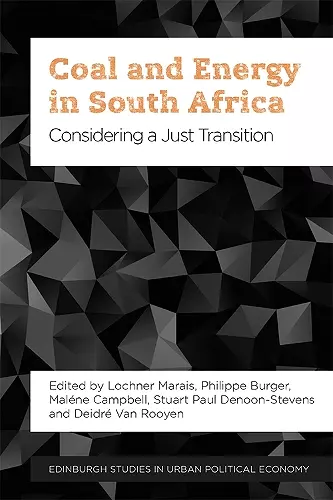Coal and Energy in South Africa
Considering a Just Transition
Lochner Marais editor Phillippe Burger editor Maléne Campbell editor Stuart Paul Denoon-Stevens editor Deidré van Rooyen editor
Format:Paperback
Publisher:Edinburgh University Press
Published:15th Nov '23
Should be back in stock very soon

Taking the growing South African mining town of Emalahleni as a case study, this book investigates whether a just transition from coal-generated energy is possible and what the local implications of this global restructuring of the energy sector will be. It looks at the consequences of shifting social responsibilities, new inequalities and the sustainability concerns created by the likely energy transition in Africa at the end of the fossil-fuel era.
This volume was an eye opener. The authors in this work of genuinely thorough scholarship skillfully use their South African mining story to develop bigger arguments about the complexity of transitioning away from a dominant resource economy. While the dramatic history of South Africa and its outsized mining sector is unique, the set of questions which arise is not. The town they focus on is still booming, but other communities already experience post-mining life, and, as the editors say, 'nobody plans for decline'. Planning for decline is especially hard when coping with growth requires all attention of local government, when post-apartheid elites want to finally benefit, and business people do not see an end to the boom. Envisioning what a transition would look like, and preparing for this, is hard. Turning such vision into a strategy is even harder. If we want such a transition to be more than economic survival, and more than avoiding environmental catastrophe, i.e. if we strive for fairness in the process and prosperous communities as a result, then the dimensions of the challenge are hard to overestimate. As the authors note, the reverberations of unregulated and unanticipated closure after a boom can span generations. Neo-liberal ideologies and mining companies anxious to avoid responsibility for communities they used to control, as well as workers desperately in need of opportunities, do not prevent the search for a just transition, however. The analyses in this book reveal, beyond complexity and despair, many signs of hope and pathways to brighter post-mining futures. -- Kristof Van Assche * University of Alberta *
ISBN: 9781474487061
Dimensions: unknown
Weight: unknown
260 pages